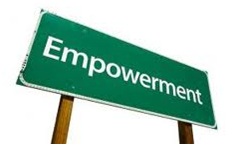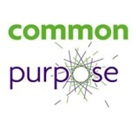|
 |
|
 |
Empowerment
Empowerment is... Taking responsibility for results.
It comes from self-motivation and the right attitudes, based on Douglas McGregor’s Theory Y (see best books below). Empowered people want to have control over their work.
Command and control (McGregor’s Theory X) is the opposite where people are told what to do and are closely supervised. Empowerment makes life easier for managers because people are looking after themselves. So managers give up power to gain power.
Empowerment isn’t...
1. Delegation (managers don’t give or delegate responsibility, people take it, when they are empowered).
2. Coercion (telling people what to do).
3. Passing the buck (managers are still responsible for their people’s performance).
4. Laissez-faire management (giving people total freedom and leaving them alone completely).
If empowerment is to work, people must work to achieve managers’ aims like customer satisfaction. Managers must also act as coaches and help people to do their jobs better.
How to empower people 1. Trust Give people work objectives and trust them to carry them out in the way they want. People must also trust managers because they respect them.
2. Resources and rewards Give people everything they need to do their jobs as well as possible – money, support, equipment and knowledge. Reward them well (e.g. higher pay) for successfully taking responsibility.
3. Learning and development Knowledge is power, giving people the confidence to take responsibility. So these are important:
4. Recruitment Recruit people who are dynamic, knowledgeable and self-motivated.
5. Inspiration People must like their work and the organization they work for. The 3 C’s show how this can be done:
a) common purpose Everyone must believe in customer satisfaction and try to achieve it.
b) confidence in management Leaders and managers must
c) community The best organizations are like one big happy family with everyone working, learning and having fun together.
6. The 4 P’s These summarize the four main ways to empower people:
a) power Managers must share power with people.
b) pay Reward people for taking responsibility. c) passion Keep people excited about their jobs.
d) purpose People must have challenging, worthwhile objectives at work.
Key quotes explained
“Power can be taken, but not given. The process of the taking is empowerment in itself” - Gloria Steinem ,American feminist writer (pictured right) People are empowered by taking responsibility and the will to do this comes from mutual trust and friendship. “Trust men and they will be true to you, treat them greatly and they will show themselves great”, said Ralph Waldo Emerson, the American philosopher.
“Knowledge is power” - Francis Bacon (English philosopher, pictured right) People need knowledge to take responsibility for themselves and their jobs. So learning and education are vital. “If you empower dummies, you get bad decisions quicker”, said Rich Teerlink, when boss of Harley-Davidson. Knowledge gives people the power to do things better and faster.
“Empowerment is not abandonment”, - Sumantra Ghoshal (pictured right) and Chris Bartlett (pictured right below), business professors. Employees shouldn’t be left to do their job alone. Empowerment comes from every employee being valued and
encouraged to take responsibility. This is an “individualized corporation”, say Ghoshal and Bartlett, in which people have;
Self-discipline is particularly vital. “Most powerful is he who has himself in his own power”, said Seneca, the Greek philosopher.
“Freedom is participation in power” - Cicero (Roman philosopher, pictured right) With power comes freedom and with that freedom comes responsibility. “Eternal vigilance is the price of liberty”, said the American president, Thomas Jefferson.
“Power is the ability to fulfil purpose”, Martin Luther King (American civil rights leader, pictured right) Empowered people do something useful and worthwhile.
Best books
Douglas McGregor (pictured right) , The Human Side of Enterprise (1960) Theory X says people are lazy and need to be supervised. Theory Y says people will work hard on their own and accept responsibility, if they have interesting work and are treated well.
Mary Parker Follett (pictured right), Dynamic Administration (1941) Power is the ability to make things happen which comes from within the individual and so cannot be delegated (i.e. given out by managers).
W. Edwards Deming (pictured right) , Out of the Crisis (1982) Give people control over their work and pride in it without any fear or anxiety.
William Byham (pictured right) and Jeff Cox (pictured right below), Zapp! The Lightening of Empowerment (1988) People are empowered by giving them
|
|
|
||
|
|
|
||
|
||
| Copyright © wisdomtowin.com All Rights Reserved | ||
|

















